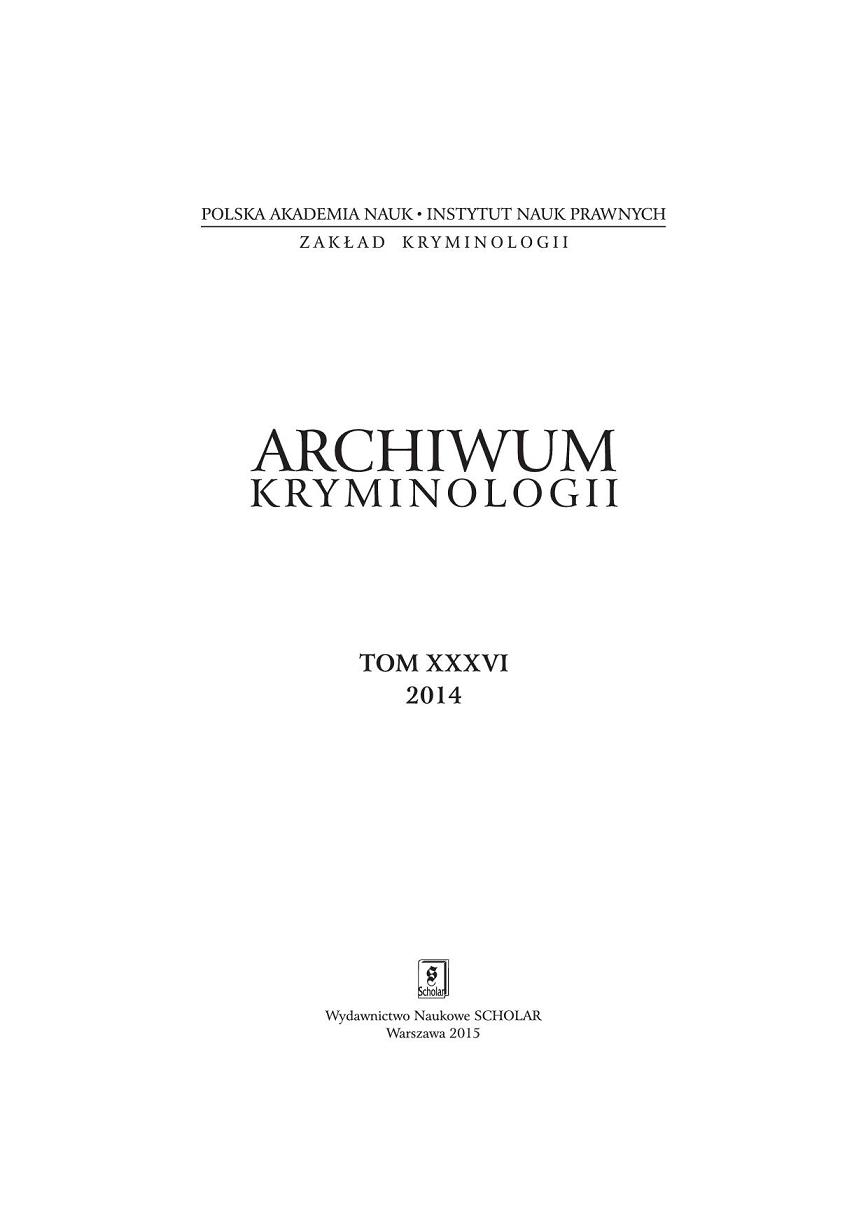Terapia uzależnień od środków odurzających i psychotropowych w warunkach więziennych, w kontekście przeciwdziałania prizonizacji
Narcotic and Psychoactive Drug Addiction Therapy in Prisons as a Way to Prevent Prisonisation
Author(s): Grzegorz KudlakSubject(s): Law, Constitution, Jurisprudence
Published by: Instytut Nauk Prawnych PAN
Keywords: imprisonment; prisonisation; narcotic and psychoactive drug addition therapy; prison;
Summary/Abstract: The many restrictions in force in a closed institution make prisons taxing and oppressive places for their inmates. Imprisonment is associated with a great deal of internal conflict and a deprivation of needs. This increases stress and psychological discomfort. This situation is often beyond the adaptation skills of convicts, prompting them to engage in a set of behavioural patterns known as prisonisation. In the process, prisoners accept norms and values that are specific to prison communities, including deviant attitudes and rituals that stand in opposition to the goals of rehabilitation and express rebellion against the institution of prison. People addicted to narcotics and psychotropic drugs have an additional motivation, viz. the possibility of obtaining drugs, to live the “double life” of prison. Research shows that incorporating specialized addiction treatment into prison programs is conducive to rehabilitation. This raises the question as to whether this therapy could effectively control prisonisation as well. The author’s own survey of prisoners who were treated shows that their hierarchy of values were significantly different six months later. This change can be regarded as developmental and indicative of successful rehabilitation. This could serve as evidence that positive therapeutic results encourage prison inmates to find constructive ways of dealing with imprisonment, reducing stress, reflecting on their conduct and understanding that their time in prison is a consequence of their actions. In this context, addiction therapy in prison may well be an effective means of preventing prisonisation.
Journal: Archiwum Kryminologii
- Issue Year: 2014
- Issue No: XXXVI
- Page Range: 259-278
- Page Count: 20

